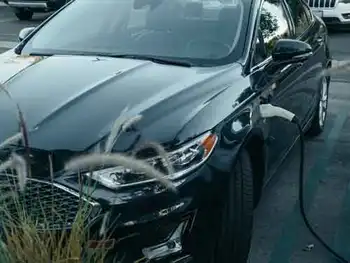Six-Nation North Korea Nuclear Talks Open
By Associated Press
CSA Z463 Electrical Maintenance
Our customized live online or in‑person group training can be delivered to your staff at your location.

- Live Online
- 6 hours Instructor-led
- Group Training Available
Meetings closed on their first day with an agreement that the Koreas, China, the United States, Japan and Russia would continue talking after the current round is done — a tacit admission that more work will probably be needed.
Despite an outwardly amiable atmosphere, the tensions of the moment — and the 16-month standoff between the United States and the North that led to it — were clear. While Washington insists the communist North dismantle its nuclear program, the North says it first wants economic and humanitarian aid and assurances that America won't attack.
The North's chief delegate, Kim Kye Gwan, said recently he would be "maintaining our principles" hours after his country issued a last-minute demand for compensation for shutting down the program.
Demanding compensation is a common maneuver for the North, which often announces hard-line positions and sometimes uses threats to pressure negotiating partners.
Washington's delegate said nothing but a wholesale elimination of the nuclear activities would do, while also reiterating that the United States has "no intention" of invading the reclusive, communist North.
"The United States seeks complete, verifiable and irreversible dismantlement of all North Korea (news - web sites)'s nuclear programs, both plutonium and uranium," Assistant U.S. Secretary of State James Kelly said in opening remarks.
Later, Kelly spent more than an hour in the Diaoyutai state guesthouse, where the North Korean delegation was located, according to China's official Xinhua News Agency, quoting Foreign Ministry spokesman Liu Jianchao.
No details from the unusual high-level contact were immediately available from either side. North Korea and the United States have no diplomatic relations and technically remain in a state of war interrupted by a 51-year armistice. Most of their diplomatic contacts are indirect.
Liu Jianchao, a spokesman for China's Foreign Ministry, said the talks were "sincere, frank and pragmatic" but suggested more meetings would be necessary after this round. "The six parties affirmed solving the nuclear question through peaceful means. Whatever questions or difficulties arise, the talks process should be continued," Liu said.
One option would be "working-level" talks among lower level officials, he said. An ending date for the meeting hasn't been set, though the first round, in August, lasted three days.
Liu reiterated China's desire for a nuclear-free Korean Peninsula, but said North Korea's security concerns also need to be addressed — a reference to Pyongyang's demand for guarantees the United States won't invade.
At issue are allegations that Pyongyang has a uranium-based weapons program as well as its known plutonium-based one. North Korean leader Kim Jong Il's government has denied having a uranium-based program.
The dispute erupted in October 2002 when Washington said Pyongyang acknowledged the existence of a nuclear program that violated a 1994 agreement binding the impoverished country to renounce nuclear development in exchange for oil and other aid.
The current round of talks convened after months of efforts to get all six countries on board. Both rounds have been brokered by Beijing — North Korea's last major communist ally and an important economic partner of the United States.
After the recent session, South Korea said it had proposed "countermeasures" if the North froze its nuclear program and showed signs of dismantling it. Seoul's head delegate, Lee Soo-hyuck, said he presented the proposal during the opening session.
"If it is such a freeze, we can push for countermeasures," Lee told reporters, using a term that is believed to refer to compensation for the North's giving up its nuclear ambitions.
He didn't elaborate, and it was unclear whether the United States had directly endorsed the proposal.
Last week, South Korean officials said Seoul was ready to resume energy aid to its communist neighbor after the dispute is resolved and the North dismantles its nuclear programs.
Lee said he had told North Korea that its freeze must cover all nuclear programs and be followed "in a short period of time" by steps toward a complete and verifiable dismantling of nuclear capabilities.
"A nuclear freeze should be an inseparable part of nuclear dismantlement. A nuclear freeze itself is not the goal. Dismantlement must be the goal," Lee said. He called on the North to address the uranium allegations.
The New York Times reported that the North will be offered fuel oil aid in return for a pledge to freeze and eventually dismantle its program. It said the offer was expected to be made by South Korea, not the United States, at the talks. It was unclear if that was the same as the offer disclosed by Lee.
A senior administration official in Washington refused to tell The Associated Press if an informal agreement had been made but said some U.S. allies have indicated a willingness to offer North Korea incentives.
The North also wants a nonaggression treaty with the United States, but Kelly said it had nothing to worry about.
"The United States has no intention of invading or attacking the DPRK," he said, using the initials for the North's official name, the Democratic People's Republic of Korea.











